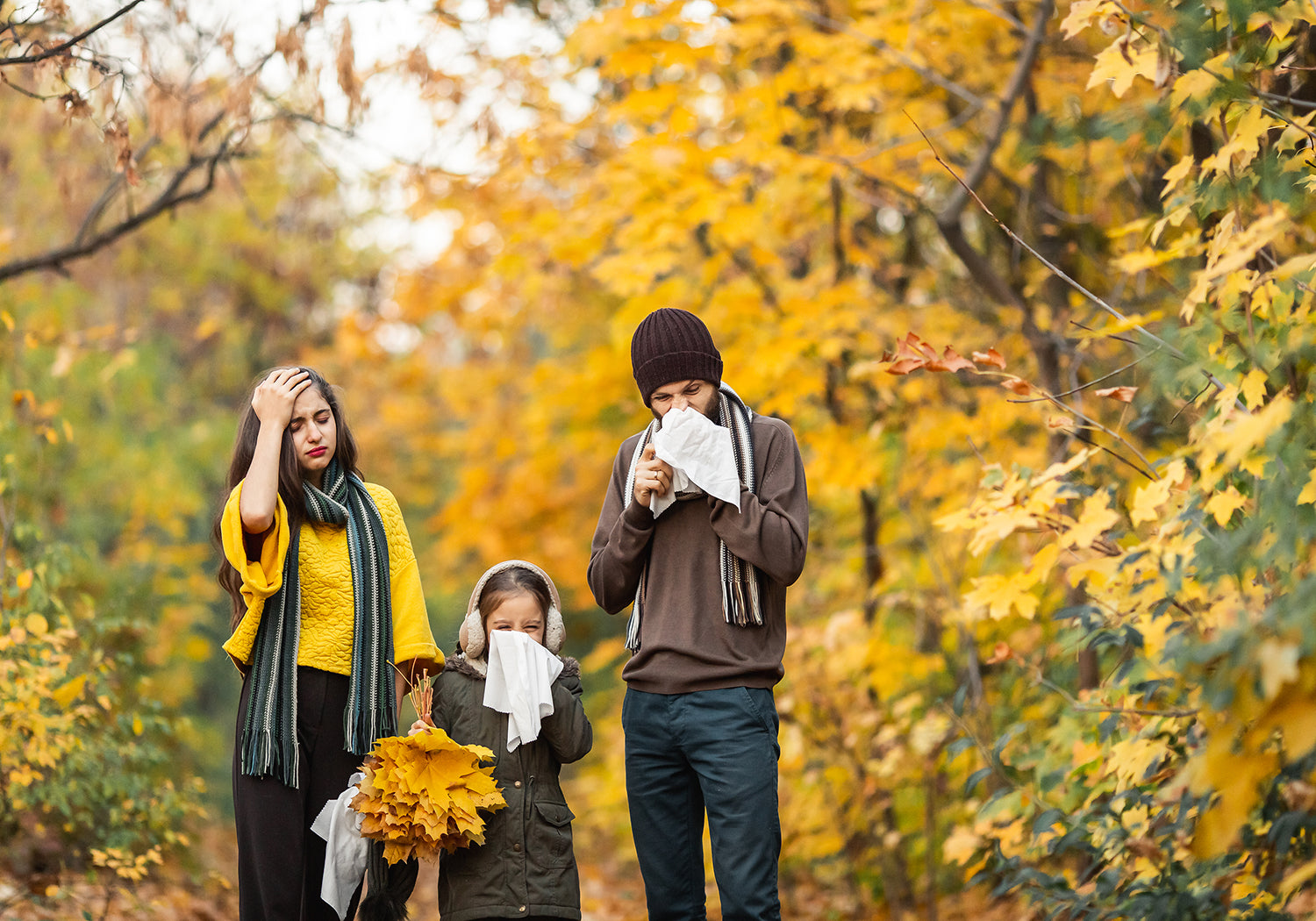
How to Manage Your Fall Allergies
With the Arrival of Fall Comes Seasonal Allergies
Fall season is here, which means cooler weather, falling leaves and comfy sweaters. But the start of fall also brings unwanted seasonal allergies. These allergies can cause sneezing, trouble breathing, a runny nose and itchy eyes. There are easy ways to manage your seasonal allergies, but first let’s take a look at the common fall allergens.
Common Fall Allergens
-
Ragweed
- The biggest allergy trigger in the fall
- Soft-stemmed weeds that grow all over the United States
- Breathing in the pollen causes allergic reaction
- About 23 million Americans are allergic to Ragweed pollen
- Ragweed season may last six to 10 weeks, or until the first hard frost
-
Mold & Mildew
- Fungi that releases spores into the air, which enter your nose and lungs when you breathe
- Thrives both outdoors and indoors
- Tends to grow year-round
- In the fall, they grow on damp fallen leaves and compost piles
-
Dust Mites
- Microscopic, insect-like pests that commonly live in house dust
- Feed on the dead scales of human skin
- Active year-round
- Turning on heating systems forces dust and residue from the mites into the air
- About 20 million Americans have a dust mite allergy
- Found most often in bedding, carpeting and upholstered furniture
Fall Allergy Symptoms
Seasonal allergy symptoms range from mild to severe. A full list of allergy symptoms are:
- Itchy, watery eyes
- Scratchy throat
- Runny nose or congestion
- Coughing or wheezing
- Sinus pressure, which may cause facial pain
- Poor sleep quality
- Postnasal drainage
- Ear congestion
Fall Allergy Relief
There are easy steps you can take to help control your fall allergies. First you should clean the inside of your home often: vacuum carpets and upholstery regularly, keep your windows completely closed, and take off your shoes before entering your home. You should also use an air purifier to help clean the air of allergens. Hunter’s air purifiers use True HEPA technology.
-
True HEPA Technology
- High-Efficiency Particulate Air Filters
- Removes up to 99.97% of airborne particles as small as 0.3 microns from the air, including pollen, mold spores, dust mite debris
- The highest standard of air filtration according to the United States Department of Energy.
Click here to shop our Hunter Air Purifiers.

